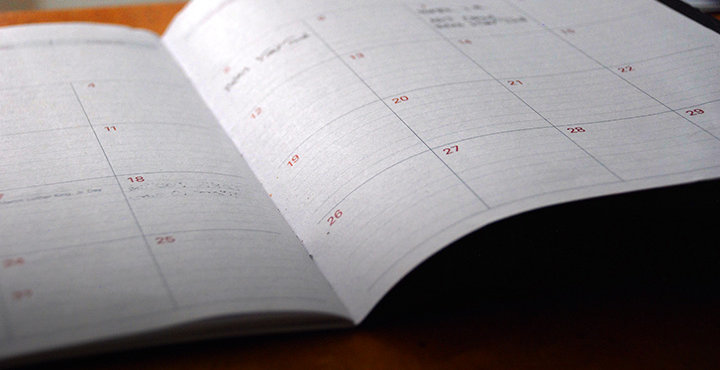Five ways to improve your time management skills
One of the most challenging aspects of finding the time to write is time management. Authors tend to work on self-made schedules, most of which don't have concrete deadlines or rigorously enforced timelines. However, a flexible schedule is both a blessing and a curse. While a flexible editorial calendar provides writers with a lifestyle of freedom, the lack of a schedule can also lead to a tremendous amount of wasted time. If you're the type of author who is forever checking status updates on social networking websites, then the following time management skills may help you buckle down and find time to write.
Five important time management skills
1. Establish a schedule
This may be the most important time management skill to enforce upon yourself. If you have solid aspirations of finishing your book sometime in the next decade, establishing a thorough schedule is an absolute necessity. We suggest treating the writing process as a job. Establish a daily start time and a definite stop time. This schedule may vary depending on your personal preferences, but as long as you've set aside a block of time to write, you'll likely find yourself writing more often. Without the structure of a schedule, it's easy to wander off and forget about your fiction writing, but if you know you're supposed to be writing from 10 a.m. to 4 p.m., you'll be more motivated to stick to your goals and resist the temptation to catch an afternoon episode of General Hospital.
2. Find and eliminate your distractions
Once you've got a schedule established, you should find yourself sitting in front of your computer more often. This is a great step, but if you find yourself browsing the Internet or checking your email every 23 seconds, you'll never get anywhere with your book. Take a minute to identify the things that prevent you from finding time to write. These may be email alerts, your cell phone, an instant messaging application, or a Solitaire program. Once you've compiled a list of time-wasting temptations, remove them. Unplug your Internet connection, close your email, and delete Solitaire! Once these temptations are gone, you'll undoubtedly find yourself more focused. This will allow you to effectively use your scheduled writing time.
3. Make a list of your daily, weekly, or monthly accomplishments and goals
If you keep track of how much work you've done from week to week, chances are you'll maintain a steady pace. What's more, if you spend five hours a day "writing" but don't actually produce anything, you need to make note of this. Set a daily or weekly goal and make sure you find the time to write in order to meet it. Your goal could be to write 10 pages a day or finish a chapter each week. Having a concrete goal is another time management technique that will push you to use your writing time more effectively.
4. Reward yourself
If you've maintained your schedule and finished your daily page expectation, don't be afraid to reward yourself. Treat yourself to something at the end of the day, or week, if you've managed to accomplish your goals. This will make all of your hard work seem worth it, and will motivate you to find more time to write in the future. If you know something good stems from your labor, then you will likely find more time to write.
5. Solicit a second opinion
There's never a bad time to ask someone to edit or critique your book. You never know, a second opinion could help kick your creative juices into gear, help you tie up loose ends, or inspire you to take your story in a new direction. Encouraging words from a friend or from one of our book editors could do wonders when it comes to how you approach your writing tasks.
Managing your time isn't as hard as it looks
Having a schedule and a goal in mind are two sure-fire time management skills that will allow you to find more time to write. Eliminating distractions will help you capitalize on your writing time. Finally, don't forget to reward yourself when you've met your goals—this will make you more likely to sit down to write again. Remember, your day will always have 24 hours in it; however many you choose to spend writing is up to you, just be sure to make them count!
Image source: Unsplash/Pixabay.com










